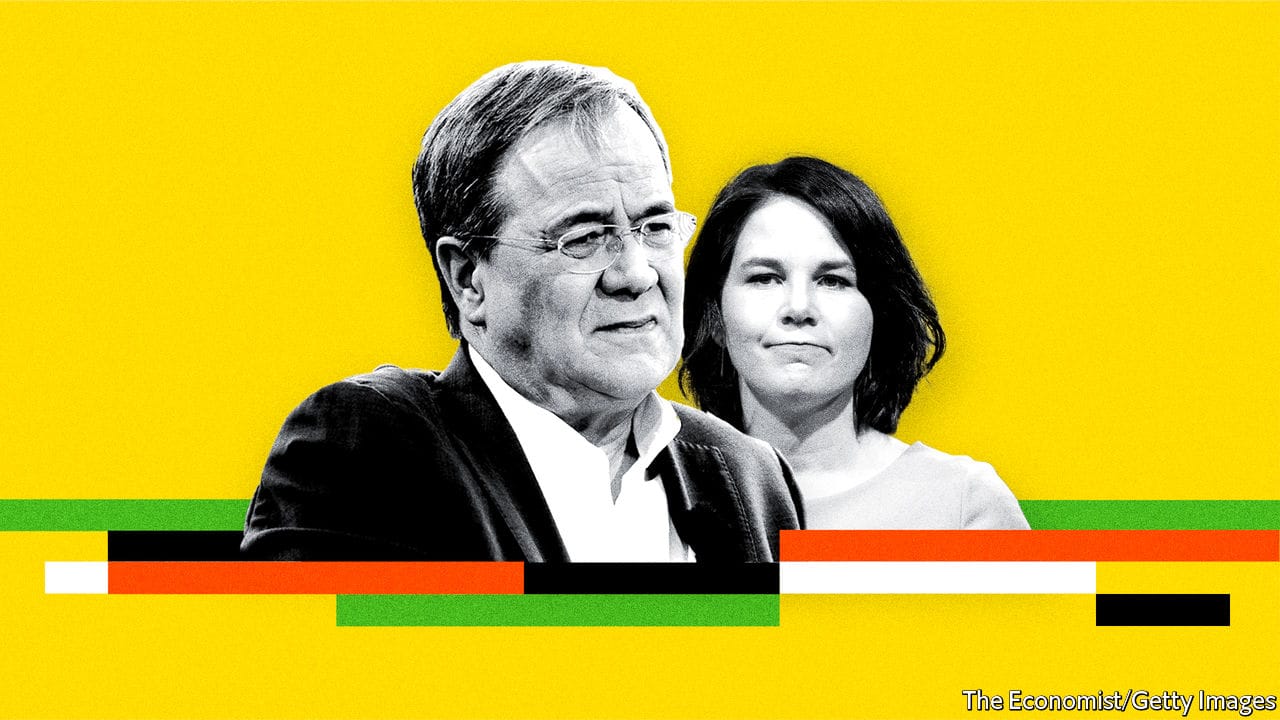- by
- 01 30, 2025
-

-
-
Loading

Loading

GERMANY’S ELECTIONCDUCSUSPDCDUCSUFDPFDPSPD;CDUCSU on September 26th will herald a new era. Angela Merkel, chancellor for 16 years, is stepping down. Who will succeed her is uncertain. Parliamentary elections employ a mix of proportional representation (with a 5% threshold for parties to make it in to the Bundestag) and single-district constituencies. The traditional big parties, Mrs Merkel’s centre-right Christian Democrats along with their Bavarian counterparts (/) and the centre-left Social Democrats (), are winning fewer votes, and coalitions often bridge the right-left divide. That makes it hard to predict the next government even if polls are accurate, which often they are not.has developed a , runs thousands of simulated elections and assesses the most probable results and the chances of various coalitions to form a majority. Our model shows that three combinations, each with a popular nickname based on its party colours, have a plausible chance of winning more than half the seats in the Bundestag. These are a “Jamaica” coalition of the /, the Greens and the liberal Free Democrats (); a “traffic-light” combination of the Greens, the and the and, the least likely, “black-green” coalition of the / and the Greens.